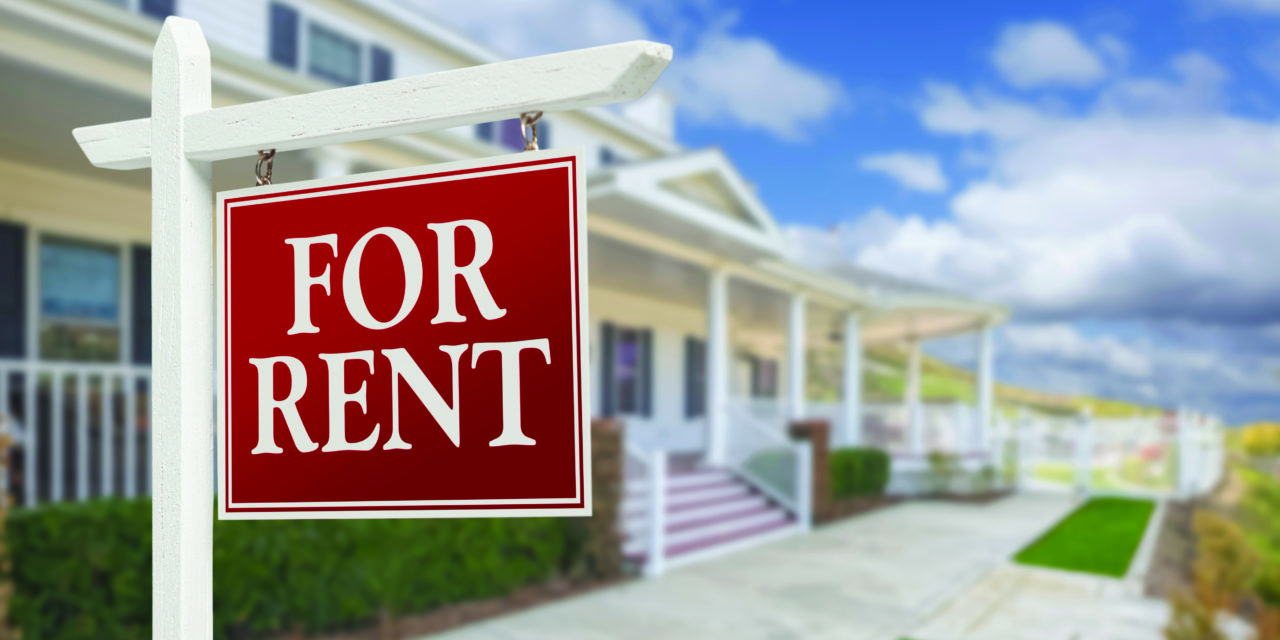Love It or List It
By Ryan Tucker
Deciding to keep or sell a property isn’t quite as easy as loving or “falling out of love” with it. Many factors need to be considered before making the choice to give up or keep your property. Issues include myriad market forces such as interest rates, economic development, personal life changes, and others. Property owners must take one or several of these concerns into account before making the choice about selling or keeping their rentals.
Financial experts say that property owners need to keep an eye on the economy and financial impacts, not just in general, but also specific things that come up in the region where the property is located. A shift in the neighborhood might prompt you to consider selling. Home values in the region can decline when neighborhood stability decreases or crime rises. The only time to hold onto a property in this situation is to know about future planning. Different areas in cities and towns often go through phases when it comes to development and redevelopment. It’s important to keep an eye on local politics and city planning.
If you happen to own a home in which the neighborhood is going downhill, but also know the city or county has plans for revitalization and redevelopment, then it’s best to consider the effect on property
values. You wouldn’t want to sell a rental in an area expected to become the next city center or where something like a sports complex or arts center is being built. Redevelopment means more money in your pocket whereas a rental in an area in decline might be better to sell before property values plummet.
Other economic factors can impact your decision too. It can be a positive change where big industries and corporations are moving into an area, which means more demand for housing. “If the area is experiencing a large net inflow of new residents, a large business like Google or Apple decided to open headquarters there, or some other big economic development news that makes your area more appealing to live in matters in your decisions,” said Marina Vaamonde, owner and founder of the Texas-based company HouseCashin. “If the area is experiencing a large outflow of residents, unemployment increases, and companies start to leave the area, you should think about selling because the long-term economic health of the area looks poor.”
“Is the property giving you a positive cash flow?” asked Alex Ferro, a real estate agent and investor based in Chicago. “Do you have long-term renters who are not giving you any major issues. Is the neighborhood improving? How are the schools and growth happening? If the property is in an area that has a lot of potential growth then you should keep the property. Rental property will continue to appreciate, and rental incomes will most likely increase as well as the asset’s value. In an overall scenario these changes are all win-win.”
Elena Jones, a personal finance expert from Jar Financial based in Los Angeles, said, “I believe two factors influence the period of sale. The first is that if individuals reside in a particular region where leaseholder popularity for their designated area is significant, it is probable that they will be able to demand higher rental income. This also implies that other shareholders or vendors see the potential and may be inclined to purchase the estate. The second aspect would be that rising rents are not paying for the cost of levies, utility services, and general liability due to increased rates. Alternatively, perhaps unanticipated repair costs are wreaking havoc on the owner’s savings account. If they’re figuring out that their ROI is steadily declining, it may be important to consider their assets.”
FINANCIAL SENSE
If you’re in the rental business strictly on an investment basis then it’s prudent to watch the market value and interest rates. Like any business you probably don’t have a personal feeling about the property per se. Yes, you care about your renters, but it’s your bottom line, and all financial impacts ultimately affect you. So, it’s practical to watch the ups and downs and assess your investment.
Starting strictly at the fiduciary level, consider the overall picture. “Economically, keeping the property is an asset,” said Ferro. “As the property is rented and the renter is paying rent, the outstanding debt is being paid by the renter and the homeowner would be receiving some cash flow. Not only is the cash flow on a monthly basis an extra income, the property is also appreciating and principal debt is being paid down, all by the renter. Essentially, the homeowner is winning in all scenarios here as they not only get cash, they get a house to sell in the future, and as time goes by the debt gets wiped out. Although there are market fluctuations, real estate in the long term has always appreciated.”
Buying or selling when you’re an investor doesn’t always have to be influenced by outside forces. “My decision to sell is typically based on the asset, and not the overall market conditions present,” said Hanna John Azar, a property owner of San Francisco-based rentals and broker-associate at Compass Commercial. “I tend to buy properties that are below replacement costs, where I can add value. However, it is always best to sell in a seller’s market. In investment real estate this can mean that Cap Rates are trending lower. Days on the market for comparable properties are not over 50 days, and that there is an ample amount of buyers in the marketplace.”

“You can sell the rental property profitably if the current value of the rental property is significantly higher than the cost of its acquisition previously,” explained Luke Lee, managing partner at Ever Wallpaper based in the UK. “Just make sure to account for the mortgage interest expense you have paid previously in computing the total acquisition cost of the real estate property. In some cases, selling the rental property gives you higher profitability than renting it out to renters monthly. Based on research, rental rates rise by as much as 2.7 percent only.”
Interest rates and long-term plans also should be considered when keeping or dropping a property. “I am a 15-year realtor and was a loan officer for five years prior to that,” said Robert Little of The Robert Little Group at RE/MAX Advantage based in Vegas. “I own several rental properties, two of which I lived in prior then bought a bigger house when I could afford more and turned them into rentals. I bought my first condo in 2002 when rates were in the 7 percent range; it was all I could afford but as I started to do well I sold that property and parlayed it into a bigger property, which I lived in for two years then rented out – and I still own today. I did the same with my next purchase. I refinanced them when rates dropped.”
Taxes and tax advantages or deficits may also compel a sale. “There are many tax advantages to rental investments,” explained Jones. “It encompasses devaluation and is one of the greatest perks as it enables owners to withdraw the expense of purchasing and enhancing estates from their tax payments well over the long term, significantly reducing their tax liability in the procedure. They can also benefit from the deduction. This implies that homeowners can subtract home loan interest on debt up to a million dollars in valuation. Furthermore, when remortgaging an estate for a higher price, landowners can subtract interest accrued if the resources have been used to enhance the estate.”
Jones continued, “The disadvantage of keeping a rental property is that real estate is not a liquid asset. Even in the most trendy industry, completing a purchase can take months. And, if one’s duration is dictated by a crisis or other unforeseeable event, the desire to offload quickly may not result in the best value. Furthermore, despite their vigilance in evaluating potential renters, they may end up with renters who aren’t ideal or are detrimental, in which case the revenue site’s amortization stipend may be grossly insufficient.”
Sometimes the decision to sell has nothing to do with interest rates or increased profitability. Renting properties can take up a lot of time and effort. You have ongoing renter rules and regulations to track, increased maintenance costs and demands as the property ages, and other property management considerations. “You know when it’s time to keep your rental properties when you still have a desire and zest to manage them even from afar,” said Herndon Davis, a mortgage loan officer based in Fort Lauderdale, Florida. “And you’re still satisfied with your year-over-year rate of return with either no or no dramatic increases in taxes, insurance or local and state regulations.”
The decision to sell, according to some experts, should be strictly based on profitability. “As an expert in real estate and believing in true generational wealth and long-term security, I would never sell unless I am going to something bigger,” said Alejandro Ferro, a real estate owner and investor from HelpingHomeOwnersSell.com.
“I don’t believe in selling an asset that is bringing in money and being successful. Unless I have extraordinary circumstances in my life needing to sell. If I am selling it is because I am looking to buy a largerbuilding that will help me grow. That is, if I have to sell if I can’t get a lender to lend on the equity I have on properties. If a bank is willing to lend and I use those funds to buy other buildings, I will continue to use my assets to pay for my growth.”
At the end of the day, property owners have to make their choices based on their circumstances and needs. Advice and market insight can steer you a certain direction but only you can decide what is best.
Ryan Tucker is a Bay Area writer.




